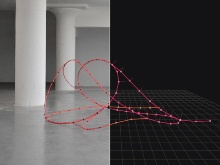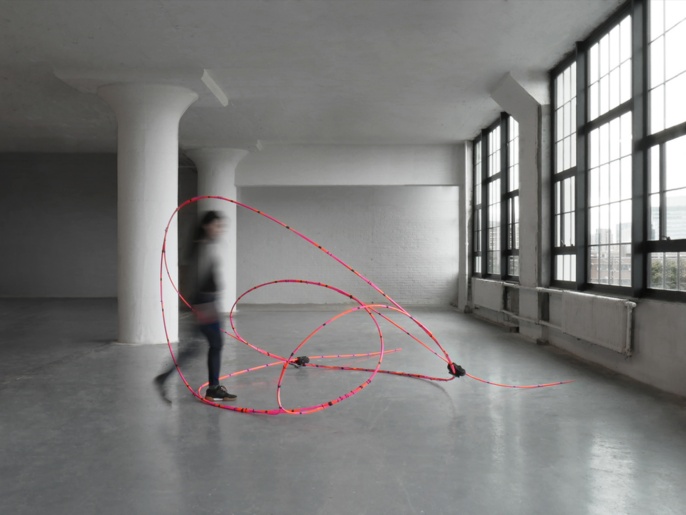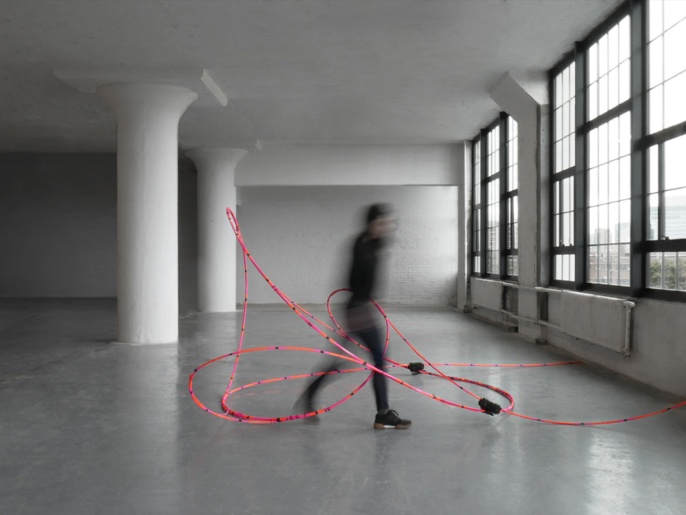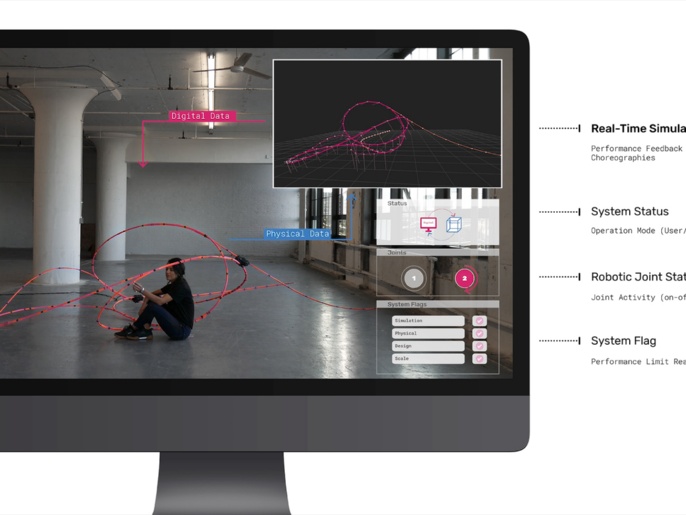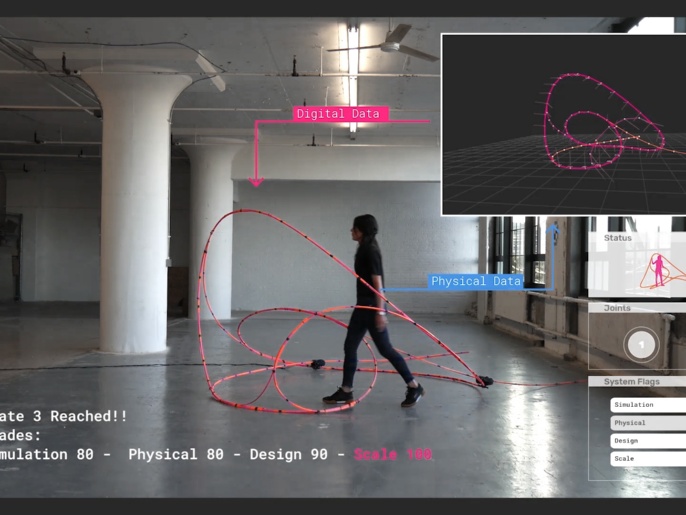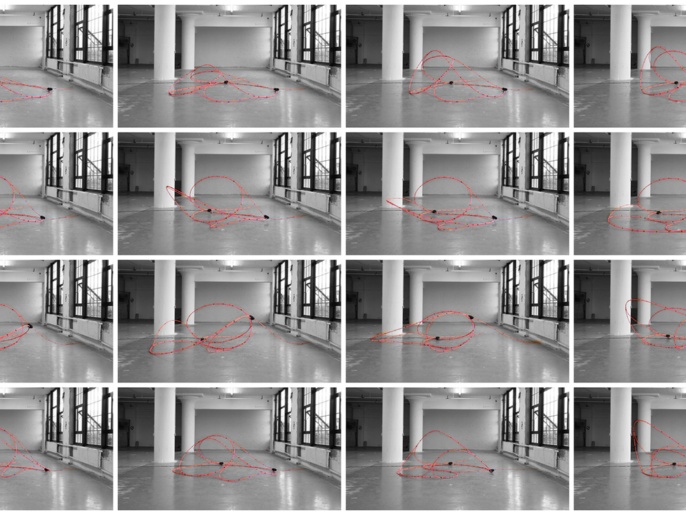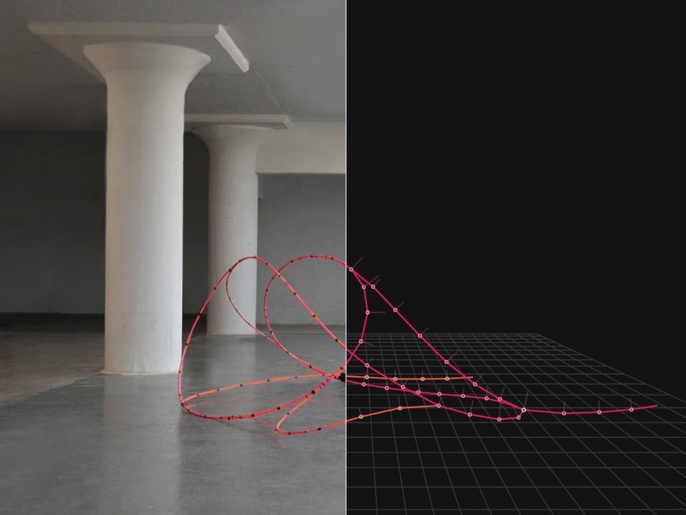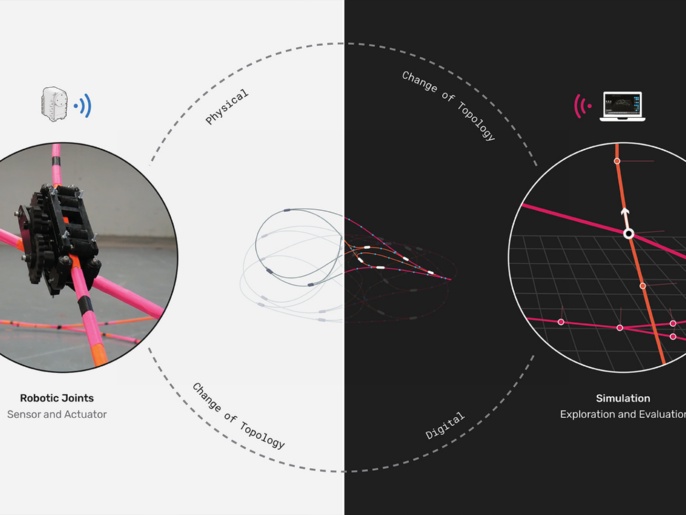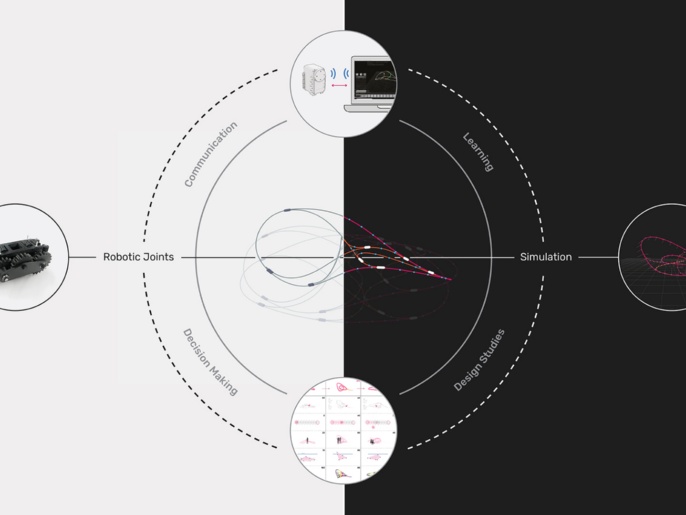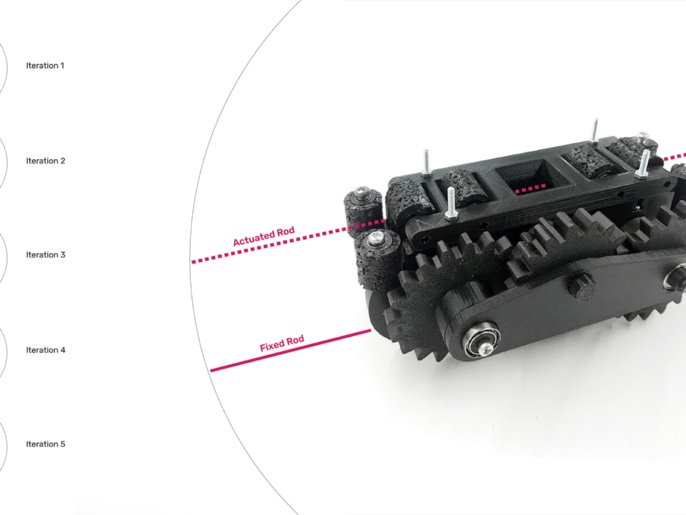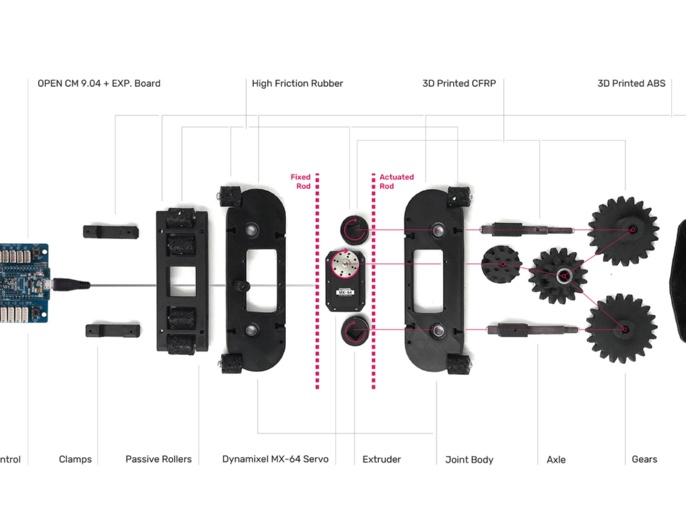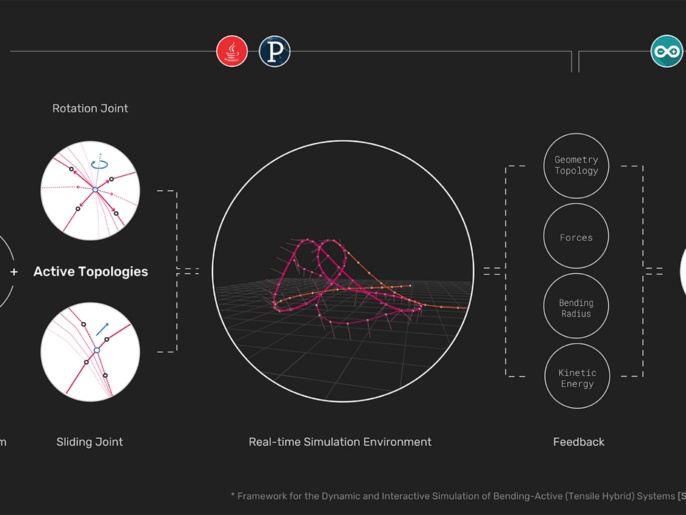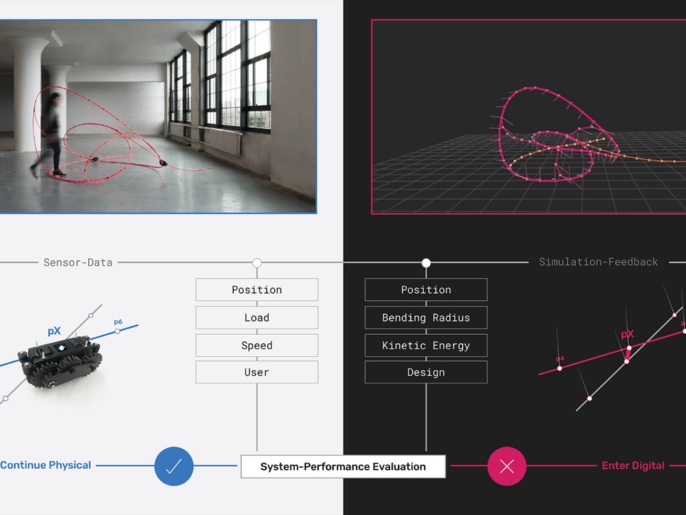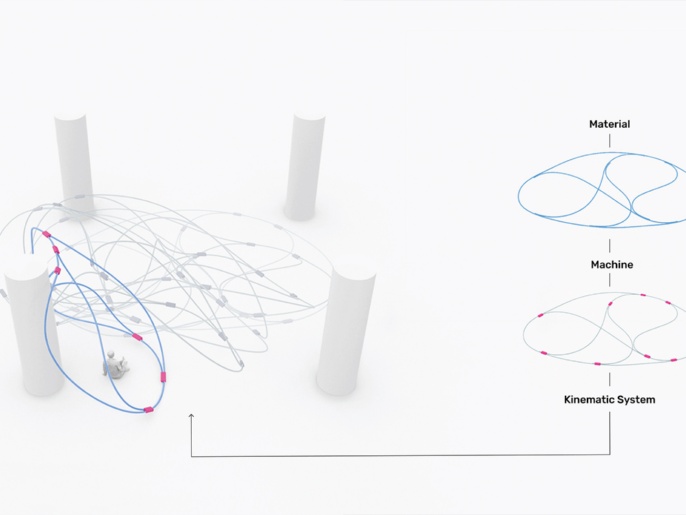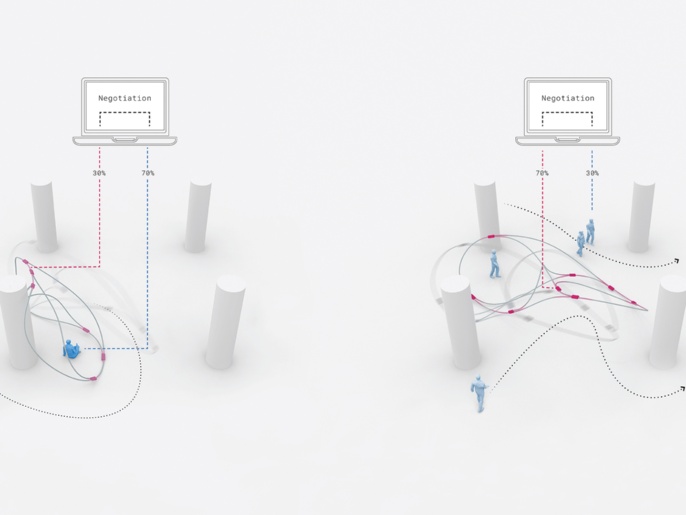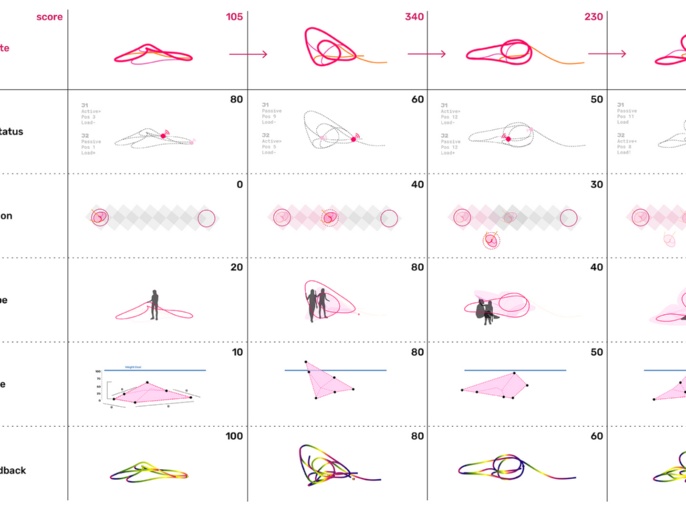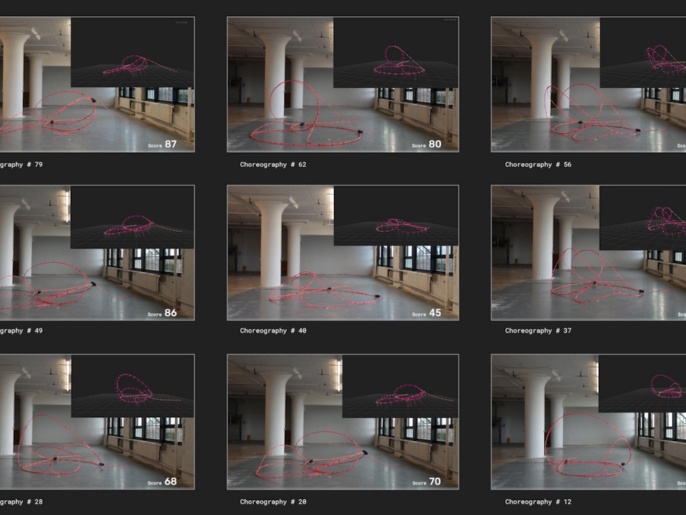Self-Choreographing Network: Towards cyber-physical design and operation processes of adaptive and interactive bending-active systems
The project aims to challenge the prevalent separation between (digital) design and (physical) operation processes of adaptive and interactive architectural systems. The linearity of these processes implies both predetermined material and kinetic behaviors, limiting performances to those that are predictable and safe. This is particularly restricting with regard to compliant or flexible material systems, which exhibit significant kinetic and thus adaptive potential, but behave in ways that are difficult to fully predict in advance. This master thesis proposes a hybrid approach: a real-time, interactive design and operation process that enables the (material) system to be self-aware, fully utilizing and exploring its kinetic design space for adaptive purposes. The proposed approach is based on the interaction of compliant materials with embedded robotic agents, at the interface between digital and physical. This is demonstrated in the form of a room-scale spatial architectural robot, comprising networks of linear elastic components augmented with robotic joints capable of sensing and two axis actuation. The system features both a physical instance and a corresponding digital twin that continuously augments physical performances based on simulation feedback informed by sensor data from the robotic joints. With this setup, spatial adaptation and reconfiguration can be designed in real-time, based on an open-ended and cyber-physical negotiation between numerical, robotic, material, and human behaviors, in the context of a physically deployed structure and its occupants.
ITECH M.Sc. Thesis Project 2018: Self-Choreographing Network
Mathias Maierhofer, Valentina Soana
Thesis Advisers: Maria Yablonina, Seiichi Suzuki Erazo, Axel Körner
Thesis Supervisor: Prof. Achim Menges
Second Supervisor: Prof. Jan Knippers
The project aims to challenge the prevalent separation between (digital) design and (physical) operation processes of adaptive and interactive architectural systems. The linearity of these processes implies both predetermined material and kinetic behaviors, limiting performances to those that are predictable and safe. This is particularly restricting with regard to compliant or flexible material systems, which exhibit significant kinetic and thus adaptive potential, but behave in ways that are difficult to fully predict in advance. This master thesis proposes a hybrid approach: a real-time, interactive design and operation process that enables the (material) system to be self-aware, fully utilizing and exploring its kinetic design space for adaptive purposes. The proposed approach is based on the interaction of compliant materials with embedded robotic agents, at the interface between digital and physical. This is demonstrated in the form of a room-scale spatial architectural robot, comprising networks of linear elastic components augmented with robotic joints capable of sensing and two axis actuation. The system features both a physical instance and a corresponding digital twin that continuously augments physical performances based on simulation feedback informed by sensor data from the robotic joints. With this setup, spatial adaptation and reconfiguration can be designed in real-time, based on an open-ended and cyber-physical negotiation between numerical, robotic, material, and human behaviors, in the context of a physically deployed structure and its occupants.
ITECH M.Sc. Thesis Project 2018: Self-Choreographing Network
Mathias Maierhofer, Valentina Soana
Thesis Advisers: Maria Yablonina, Seiichi Suzuki Erazo, Axel Körner
Thesis Supervisor: Prof. Achim Menges
Second Supervisor: Prof. Jan Knippers


